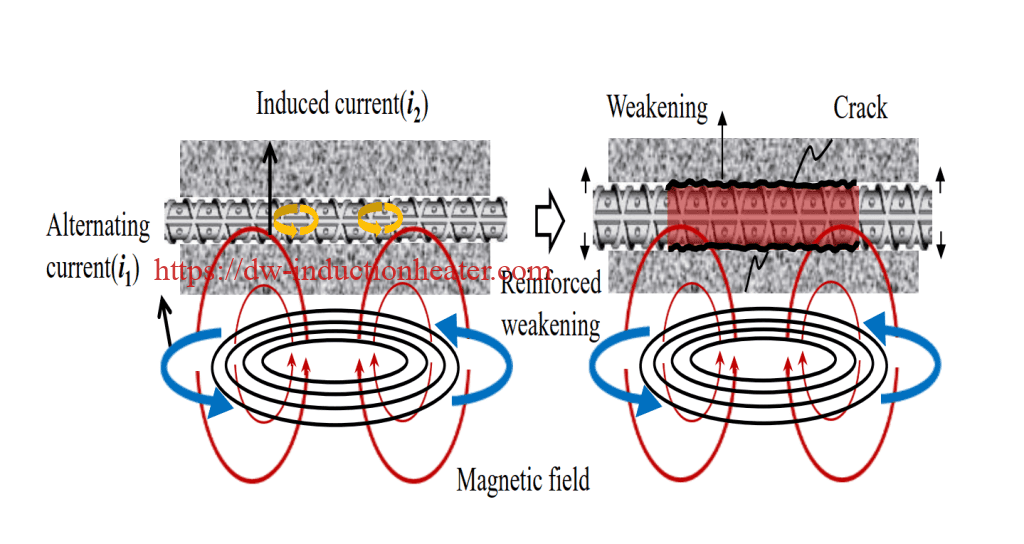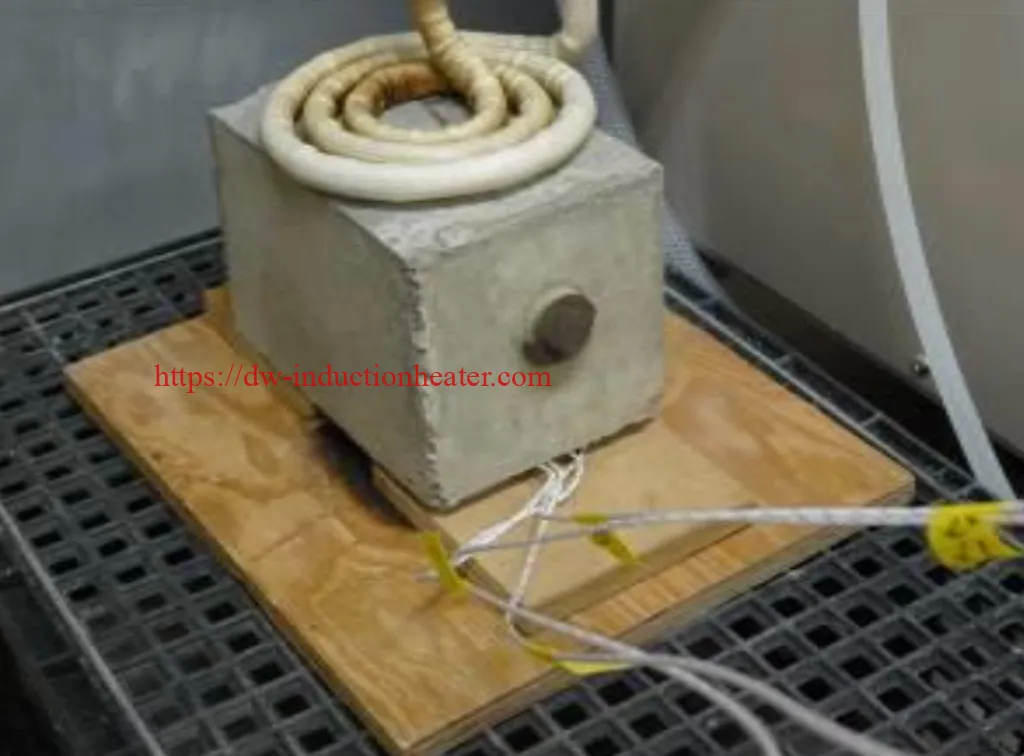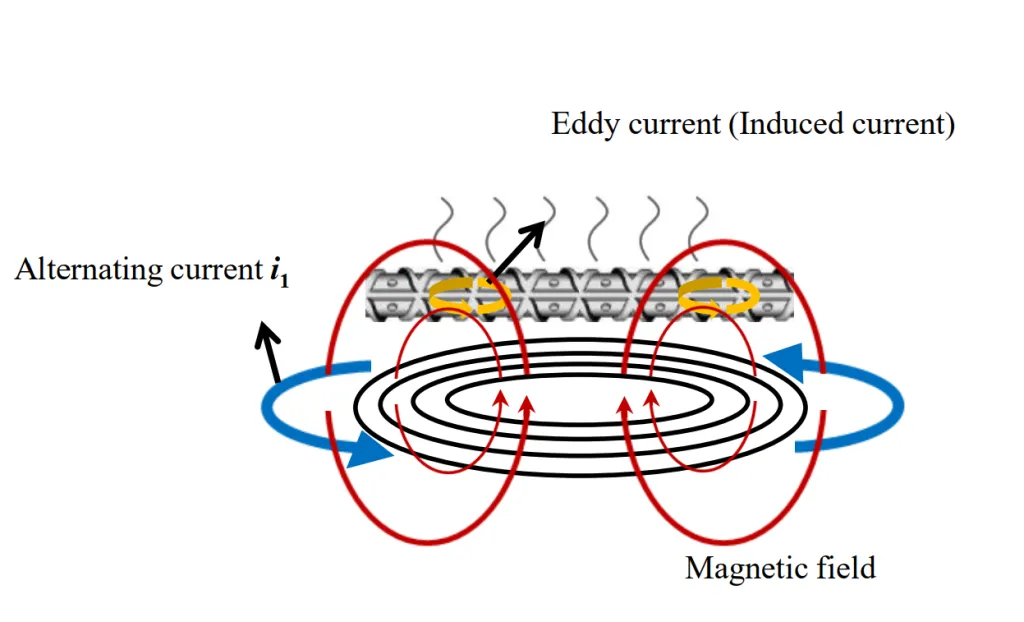Induction Heating Ferroconcrete Dismantling Machine
 The high-frequency induction heating method is based on the principle that the concrete around the rebar becomes
The high-frequency induction heating method is based on the principle that the concrete around the rebar becomes
vulnerable as the heat generated from the rebar surface is transmitted to the concrete. In this method, heating occurs
inside the concrete without direct contact with the heated object, i.e. the internal rebar. As shown in Figure 3, it is
possible to rapidly heat the internal rebar inside the ferroconcrete because the energy density is much higher in this method compared with ohmic heating and microwave heating methods based on combustion.
In concrete, the calcium silicate hydrate (C-S-H) gel accounts for 60–70% of the cement hydrate, and Ca(OH)2 accounts for 20–30%. Normally, the free water in the capillary tube pores evaporates at about 100°C, and the gel collapses as the first phase of dehydration at 180°C. Ca(OH)2 decomposes at 450–550°C, and C-S-H decomposes at over 700°C. Since the concrete matrix is a multi-pore structure composing the cement hydrate and absorbed water and composed of capillary tube water, gel water and free water and composes, concrete dehydrates in a high temperature environment, resulting in pore structure changes and chemical changes. These in turn influence the physical characteristics of the concrete, which depend on the types of cement, mixture, and aggregate used. The compressed strength of concrete tends to significantly decrease above 500°C although it shows no substantial
changes up to 200°C [9, 10].
The heat conductivity of concrete varies according to mixture rate, density, nature of the aggregates, moisture state and type of cement. In general, it was known that the heat conductivity of concrete is 2.5–3.0 kcal/mh°C, and the heat conductivity at high temperature it tends to decrease as the temperature increases. Harmathy reported that moisture increased the heat conductivity of concrete in below 100℃ [11], but Schneider reported that usually heat conductivity gradually decreased in all ranges of temperature as the internal temperature of concrete increased [9]….



